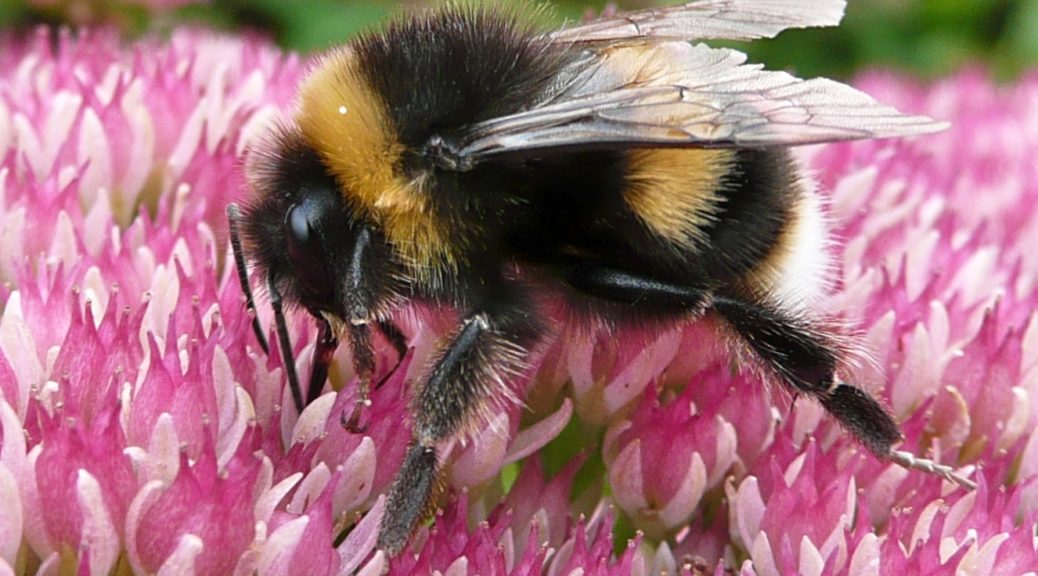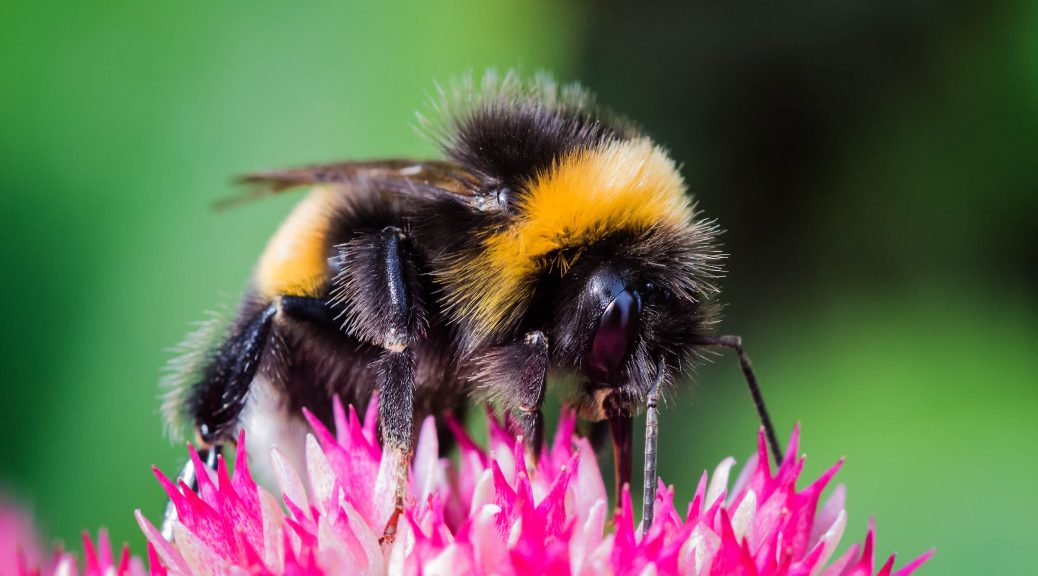The Independent reports neonicotinoids, linked to collapse in insect pollinator populations, knock bees’ and flies’ behavioural rhythms out of sync. Almost all living creatures require sleep in some form to function properly, and insects are no exception. But new research warns exposure to a common insecticide, banned in the EU but set for reintroduction to the UK, impacts the sleep of bumblebees and fruit flies, and “may help us understand why insect pollinators are vanishing from the wild”.
Tag Archives: bees
Specieswatch: violet carpenter bee – an exotic, heavyweight arrival to UK
The Guardian reports if you see a violet carpenter bee, xylocopa violacea, in Britain, it seems too exotic for our shores, and too big. It is up to 3cm long, the size of our largest bumble bee, and it looks even larger when flying with an impressive buzz.
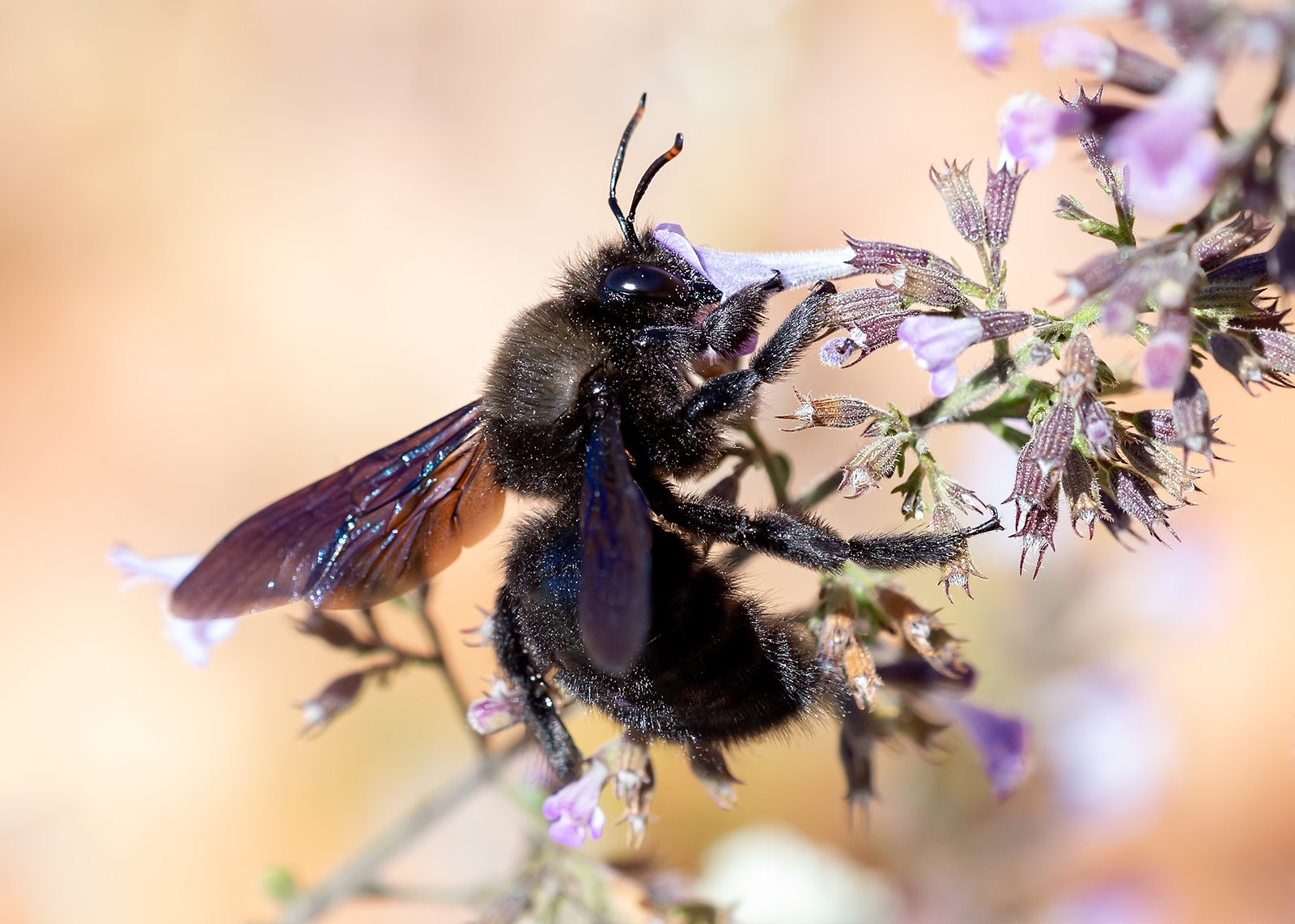 In late August, the adults emerge from a dead tree trunk or other old wood where they have spent the larval stage. After mating in late April or May, female bees bore holes in rotten wood and lay eggs in separate chambers, each one sealed in with a store of pollen so the emerging larvae can have a good start in life.
In late August, the adults emerge from a dead tree trunk or other old wood where they have spent the larval stage. After mating in late April or May, female bees bore holes in rotten wood and lay eggs in separate chambers, each one sealed in with a store of pollen so the emerging larvae can have a good start in life.
Climate change has brought this southern European species to our shores.
Violet carpenter bee photo by Charlie Jackson under creative commons.
Brussels failing to protect bees, says watchdog
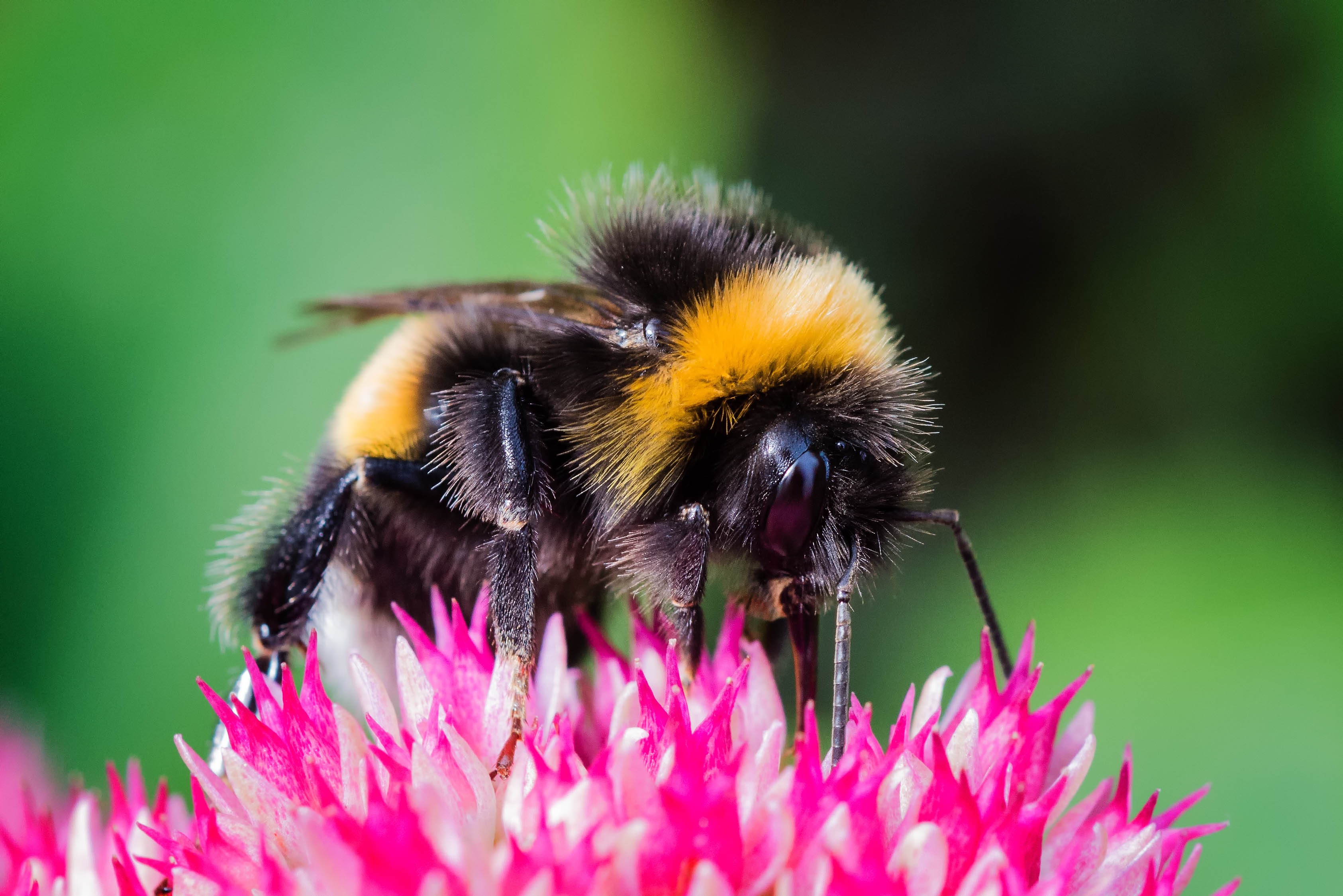 The GUARDIAN reports EU loopholes allow use of banned pesticides known to be major killers of key species. Bees and other wild pollinators are not being protected from decline by the EU, with loopholes even allowing for the use of banned pesticides known to be major killers of key species. A report from the European court of auditors has found that Brussels’ efforts to prevent the decline of bees, wasps, hoverflies, butterflies, moths, and beetles have been largely ineffective.
The GUARDIAN reports EU loopholes allow use of banned pesticides known to be major killers of key species. Bees and other wild pollinators are not being protected from decline by the EU, with loopholes even allowing for the use of banned pesticides known to be major killers of key species. A report from the European court of auditors has found that Brussels’ efforts to prevent the decline of bees, wasps, hoverflies, butterflies, moths, and beetles have been largely ineffective.
Photo by Jice75 under creative commons.
Making a beeline: wildflower paths across UK could save species
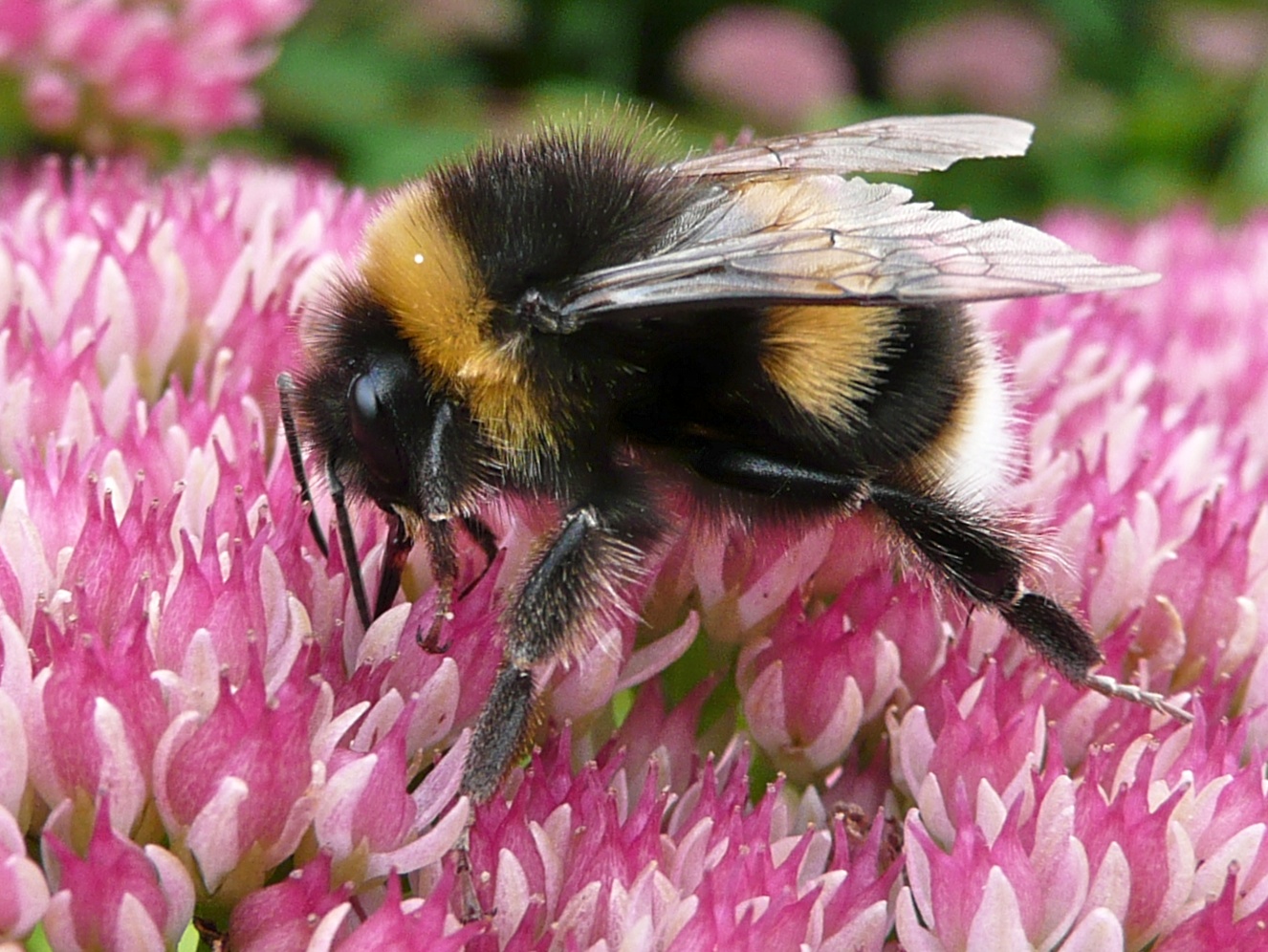 The Observer reports Buglife aims to help restore 150,000 hectares of bee-friendly corridors to save the insects from extinction.
The Observer reports Buglife aims to help restore 150,000 hectares of bee-friendly corridors to save the insects from extinction.
Buglife, hopes to help restore and create at least 150,000 hectares of wildflower pathways with the launch on Monday of its B-lines network for England.
Photo by Jim Smart under creative commons.
Nature: Bumblebees’ ‘clever trick’ fools plants into flowering
 BBC News and Daily Mail report scientists have discovered a new behaviour among bumblebees that tricks plants into flowering early. Researchers found that when deprived of pollen, bumblebees will nibble on the leaves of flowerless plants. The damage done seems to fool the plant into flowering, sometimes up to 30 days earlier than normal. Writing in the journal Science, the scientists say they have struggled to replicate the bees’ trick in the laboratory.
BBC News and Daily Mail report scientists have discovered a new behaviour among bumblebees that tricks plants into flowering early. Researchers found that when deprived of pollen, bumblebees will nibble on the leaves of flowerless plants. The damage done seems to fool the plant into flowering, sometimes up to 30 days earlier than normal. Writing in the journal Science, the scientists say they have struggled to replicate the bees’ trick in the laboratory.
Photo by Jice75 under creative commons.
Bees kept for honey are killing wild species by spreading disease
The Independent report nineteen per cent of flowers sampled near domestic beehives had viruses on them. Beekeepers could be fuelling the worrying decline of wild bees, new research suggests. Wild bumblebees can contract diseases from domestic honeybees if they share the same flowers, according to new US research which suggests domestic beehives should be kept out of areas home to particularly vulnerable pollinators.
Wild flowers turn the A630 into a bee road
The Times reports a strip of central reservation in an industrial zone in a rugged former mining town is not the first place you’d imagine to find an oasis of nature but that is what Rotherham has managed with a “river of flowers” along eight miles of roads. A blend of cornflowers, poppies, fairy toadflax, marigolds and more have washed an otherwise urban landscape with a spray of colour.
The project has been widely praised on social media, not just for its appearance but also for its help to the ailing bee population, as well as the local authority’s budget, which has saved £23,000 by no longer having to regularly cut back the plant life.
Dozens of bee species extinct or on verge of disappearing across UK
Many species of bee are on the brink of extinction in parts of the UK – and some types have been lost entirely, a report has found.
Climate change, habitat loss, pollution and disease are threatening the pollinators, the analysis of 228 species concluded. Many are battling to keep up with the changing face of their landscape and increasingly hot weather.
It discovered that 17 species were regionally extinct – including the Great Yellow Bumblebee, the Potter Flower Bee and the Cliff Mason Bee – with 25 types threatened and another 31 of conservation concern.
The bee’s pollinating services are worth £690 million a year to the UK economy.
London to build seven-mile ‘bee corridor’ to boost dwindling numbers of pollinators
The INDEPENDENT reports more than 97 per cent of UK wildflower meadows have disappeared since Second World War. A London council is growing a seven-mile long “bee corridor” of wildflowers in an effort to boost the numbers of pollinating insects this summer.
Brent Council in north London is sowing 22 wildflower meadows in the borough’s parks and open spaces, which together will form 50,000sq m of new flowering spaces and stretch seven miles in length. The council said it believed the initiative to be the first of its kind in the capital.
‘Bee saviour’ sugar cards could save starving insects
The Guardian reports if you’ve ever felt a pang of pity for a starving bee struggling on the pavement in front of you, then help may soon be at hand. Or more precisely, in your wallet.
A community development worker has invented a credit card-style reviver for bees containing three sachets of sugar solution, which can be placed beside the insect to feed it.
Dan Harris, 40, is now crowdfunding to produce the “Bee Saviour” cards after the success of his prototype, with community groups and businesses in his local city of Norwich, including the Book Hive bookshop and a local pub, pledging to stock the £4 bee revivers.
Each card contains three indentations containing a beekeepers’ formula, secured by foil-backed stickers which can be peeled off.
Photo by Jim Smart under creative commons.

